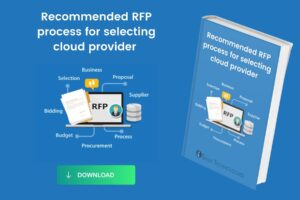DevOps is a collaborative approach that combines software development (Dev) and IT operations (Ops) to shorten the systems development life cycle and deliver high-quality software. However, implementing DevOps practices effectively can be challenging, especially as projects scale up or become more complex.
DevOps automation emerges as a solution to streamline processes, reduce errors, and accelerate software delivery. In this article, we will explore how ChatGPT, an advanced language model, can make DevOps automation easier and more efficient.
Understanding DevOps and Its Challenges
DevOps promotes a cultural shift, fostering collaboration and communication between development and operations teams. It aims to automate repetitive tasks, increase deployment frequency, and ensure faster time-to-market.
Challenges in DevOps arise from the need to align diverse teams, manage complex infrastructures, and integrate multiple tools and technologies seamlessly.
The Role of Automation in DevOps
Automation plays a pivotal role in DevOps success. It empowers teams to automate code testing, continuous integration, deployment, monitoring, and more.
By reducing manual interventions, DevOps automation enhances efficiency, minimizes human errors, and allows teams to focus on more strategic tasks.
Benefits of DevOps Automation
DevOps automation brings forth numerous benefits for organizations:
- Increased Efficiency: Automated processes enable faster software delivery and reduce time-consuming manual interventions.
- Enhanced Quality: Automation ensures consistency and repeatability, leading to improved software quality.
- Cost Savings: By minimizing errors and optimizing resource utilization, automation reduces operational costs.
- Faster Time-to-Market: Automated pipelines enable quicker release cycles, giving businesses a competitive edge.
- Improved Collaboration: Automation fosters better communication and collaboration between development and operations teams.
Tools and Technologies for DevOps Automation
There are several popular tools and technologies used in DevOps automation, including:
- Continuous Integration (CI) Tools: Jenkins, GitLab CI/CD, CircleCI.
- Configuration Management Tools: Ansible, Puppet, Chef.
- Containerization Tools: Docker, Kubernetes.
- Infrastructure as Code (IaC) Tools: Terraform, CloudFormation.
- Monitoring and Logging Tools: Prometheus, ELK Stack.
Getting Started with ChatGPT for DevOps Automation
ChatGPT is an advanced language model developed by OpenAI. It utilizes the latest innovations in natural language processing and machine learning to understand and generate human-like text.
ChatGPT can be leveraged to simplify DevOps automation and enhance various stages of the DevOps lifecycle.
How ChatGPT Simplifies DevOps Automation
ChatGPT can streamline DevOps automation in the following ways:
- Automated Documentation: ChatGPT can generate documentation for code and configurations, making it easier to maintain and share knowledge.
- Automated Testing: By understanding context, ChatGPT can help write test cases and perform code testing.
- Continuous Monitoring: ChatGPT can be trained to monitor system performance and generate alerts for anomalies.
- Troubleshooting Assistance: ChatGPT can assist in debugging issues and providing solutions.
Real-Life Use Cases of DevOps Automation with ChatGPT
- Automated Deployment: ChatGPT can help automate the deployment process, ensuring seamless and error-free releases.
- Continuous Integration: ChatGPT can integrate with CI tools and trigger automated builds upon code commits.
- Infrastructure Management: ChatGPT can assist in managing infrastructure by generating IaC scripts and configurations.
- Alerting and Notifications: ChatGPT can monitor logs and raise alerts for critical events.
Tips for Effective DevOps Automation with ChatGPT
- Start Small: Begin with simple tasks and gradually expand the scope of ChatGPT’s involvement in automation.
- Monitor Performance: Keep track of how ChatGPT affects different automation processes and fine-tune its responses as needed.
- Maintain Security: Ensure proper access controls and restrict ChatGPT’s capabilities to maintain security.
Best Practices for Implementing DevOps Automation
- Collaboration is Key: Encourage open communication and collaboration between developers and operations teams.
- Version Control: Use version control systems to track changes in code and configurations.
- Automate Security Checks: Integrate security checks into the automation pipeline to identify vulnerabilities early on.
Overcoming Challenges in DevOps Automation
- Human Oversight: While automation is powerful, human oversight is still crucial to handle exceptional cases.
- Training ChatGPT: Properly train ChatGPT to ensure accurate and contextually relevant responses.
- Handling Complexity: For highly complex tasks, consider breaking them down into smaller, manageable components.
Future of DevOps Automation
The future of DevOps automation looks promising.
As AI and machine learning continue to advance, ChatGPT and similar models will become even more sophisticated, enabling organizations to achieve higher levels of automation and efficiency in their DevOps practices.
Conclusion
DevOps automation is a game-changer for modern software development and operations. By leveraging ChatGPT, teams can enhance collaboration, streamline processes, and accelerate software delivery.
As the technology evolves, the potential for automation will only grow, making DevOps practices more accessible and efficient.





